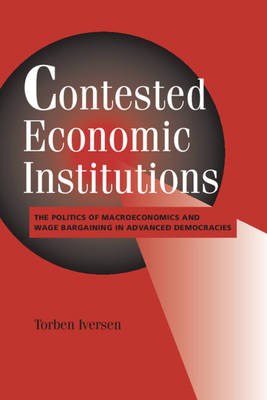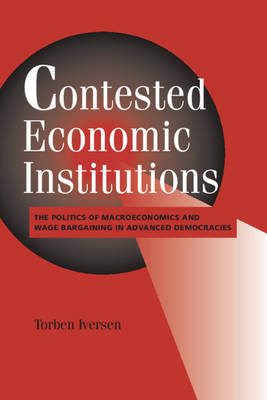
- Afhalen na 1 uur in een winkel met voorraad
- Gratis thuislevering in België vanaf € 30
- Ruim aanbod met 7 miljoen producten
- Afhalen na 1 uur in een winkel met voorraad
- Gratis thuislevering in België vanaf € 30
- Ruim aanbod met 7 miljoen producten
Zoeken
Contested Economic Institutions
The Politics of Macroeconomics and Wage Bargaining in Advanced Democracies
Torben Iversen
€ 136,95
+ 273 punten
Uitvoering
Omschrijving
This book helps explain one of the most intriguing and politically salient puzzles in comparative political economy: why some countries have much higher unemployment rates than others. Contrary to new classical economics the focus is on explaining distribution and equilibrium unemployment, and contrary to neo-corporatist theory the role of monetary policy and rational expectation is integral to the analysis. The book makes two central arguments. The first is that monetary policies affect equilibrium employment whenever wages are set above the firm level. The second argument focuses on the distributive effects of different institutions, and models institutional design as a strategic game between partisan governments and cross-class alliances of unions and employers.
Specificaties
Betrokkenen
- Auteur(s):
- Uitgeverij:
Inhoud
- Aantal bladzijden:
- 238
- Taal:
- Engels
- Reeks:
Eigenschappen
- Productcode (EAN):
- 9780521642262
- Verschijningsdatum:
- 28/08/1999
- Uitvoering:
- Hardcover
- Formaat:
- Genaaid
- Afmetingen:
- 157 mm x 231 mm
- Gewicht:
- 430 g

Alleen bij Standaard Boekhandel
+ 273 punten op je klantenkaart van Standaard Boekhandel
Beoordelingen
We publiceren alleen reviews die voldoen aan de voorwaarden voor reviews. Bekijk onze voorwaarden voor reviews.








